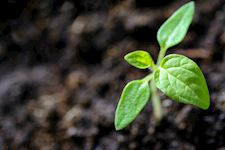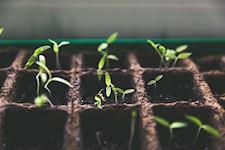Plant Science - Advanced Diploma - (TQUK - Training Qualifications UK)
Distance learning course with study materials, tutor support and final exam included
Academy For Distance Learning
Summary
- Certificate of completion - Free
- Exam(s) / assessment(s) is included in price
- Tutor is available to students
Add to basket or enquire
Overview
Plant Science Online Course. 800 Hours Advanced Diploma Course.
This Online Course provides the student with a balanced view between the two important requirements of Plant Science: Theory and Practical Application to the Commercial World.
This enables students to gain an excellent all round and solid understanding of what is required to turn their knowledge into transferable skills, useful to an employer.
Students working in, or wishing to work in the following industries, who desire to undertake a course for their Continuing Professional Development, will benefit from taking this course:
- Horticulture
- Agronomy
- Forestry
- Environmental Management
- Those in Plant Industries, who want o build and enhance their career
- People preparing to do more advanced studies in science subjects
Plants play a vital part in our everyday lives. They supply us with food, fuel, medicines and other essential plant based products. In addition, plants clean our air and help to maintain warmer days and cooler nights. Therefore, there are many varied opportunities to those completing the course.
The Diploma consists of 8 individual modules and 100 hour Industry Meetings or Research Project.
This course has been endorsed by TQUK. Endorsement of our courses by TQUK sets them apart from other vocational learning programs and is an achievement to be proud of. It further demonstrates that we are an efficient academy with excellent courses and tutorial support. It also means that potential and existing students, employers and universities can be sure of the true value of the learning we provide.
Benefits of an ADL Endorsed Course?
Endorsed courses are skills based. They have been evaluated and approved by an independent awarding body such as Training Qualifications UK (TQUK).
What makes ADL’s Endorsed courses different?
- Flexible Self-Paced Learning– adjust your learning around your home and work commitments
- Start and Finish at any time
- Courses globally and industry relevant
- Practical Component at the end of most lessons.
Allocated your own tutor relevant to your subject. You can have as little or as much contact as you like with your tutor. They are there to support you all the way through.
This course is endorsed by TQUK -Training Qualifications UK, an OFQUAL awarding body.
Achievement
Course media
Description
Lesson Structure: Advanced Diploma in Plant Science VSC004
There are 8 modules:
Compulsory Modules:
- Botany I – BSC104
- Trees for Rehabilitation – BHT205
- Biochemistry 1 – Plants – BSC102
- Professional Practice for Consultants – BBS301
- Relevant work experience(100 Hrs)* or Research Project I
Elective Modules (choose 3):
- Plant Ecology
- Tissue Culture
- Plant Breeding
- Botany II
- Biochemistry II
Work Experience can be satisfied by showing documentary proof of attendance at a combination of seminars, conferences, trade shows and/or meetings.
Note: that each module in this Advanced Diploma is a certificate in its own right, and may be studied separately.
WHAT’S IN THE MODULES?
Botany I – BSC104
- Taxonomic Classification of Plants
- Cells and Tissues
- Specific Vegetative Parts of a Plant
- Flowers and Fruit
- Seed and the Developing Embryo
- Photosynthesis and Growing Plants
- Respiration
- The Role of Water
- Movement of Water and Assimilates through a Plant
- The Effects of Tropisms and Other Growth Movement
Trees for Rehabilitation – BHT205
- Approaches To Land Rehabilitation
- Ecology Of Soils And Plant Health
- Introduction To Seed Propagation Techniques
- Propagation And Nursery Stock.
- Dealing With Chemical Problems
- Physical Plant Effects On Degraded Sites
- Plant Establishment Programs
- Hostile Environments
- Plant Establishment Care
- Rehabilitating Degraded Sites
Biochemistry 1 – Plants – BSC102
- Introduction
- Lipids and proteins
- Enzymes
- Nitrogen and the nitrogen cycle
- Photosynthesis and respiration
- Assimilation and transpiration
- Acidity and alkalinity
- Chemical analysis
- Biochemical applications
Professional Practice for Consultants – BBS301
- Determining If a Consultancy Practice is for You
- Planning a Consultancy Practice: Part 1
- Planning a Consultancy Practice: Part 2
- Knowing What to Charge
- Setting Up Your Consulting Practice
- Keeping Accounts and Records
- How to Generate Business & Keep It
- Maintaining Your Consultancy Practice
Research Project I
- Determining Research Needs
- Searching For Information
- Research Methods
- Using Statistics
- Research Reports
- Research Reporting
- Reporting On A Research Project
Plant Ecology
- Introductory Ecology
- Plant Communities
- Plants and their Environment
- Plants, Soils & Climate
- Plant Adaptations to Extreme Environments
- Manipulating Plant Environments
- Environmental Conservation
- Environmental Organisations, Assessment and Funding
Tissue Culture
- Introduction including a review of basic plant nutrition.
- Plant Nutrients
- The Laboratory
- Micropropagation Techniques
- Plant Hormones
- The Tissue Culture Environment
- Commercial Applications
- Taking Plants out of Culture
- Culture of Selected Species
Plant Breeding
- The Scope and Nature of the Plant Breeding Industry
- Introduction to Genetics
- Gamete Production, Pollination and Fertilisation in Plants
- Mono Hybrid and Dihybrid Inheritance in Plants
- Systematic Botany and Floral Structures
- Practical Plant Breeding Techniques
- Current Developments in Plant Genetics
Botany II
- Flower physiology
- Phytochrome
- Photoperiodism
- Control of flower bud initiation and development
- Dormancy
- Effects of plant associations and competition
- Respiration and post harvest physiology
- Post harvest storage, transport, retailing and shelf life
- Endogenous and synthetic growth regulators
- Risks involved with plant growth manipulation
Biochemistry II
- Introduction to Biochemical Molecules
- Amino Acids
- Structure of Proteins
- Protein Dynamics
- Sugars and Polysaccharides
- Lipids (Fats) and Membranes
- Enzymes, Vitamins and Hormones
- DNA and RNA
- Laboratory Techniques
Each lesson culminates in an assignment which is submitted to the Academy, marked by the Academy's tutors and returned to you with any relevant suggestions, comments, and if necessary, extra reading.
Who is this course for?
Horticulturalists, Home Gardeners, Botanists, Plant Ecologists, Consultants
Requirements
A pc or laptop with internet connection.
Career path
There are numerous career paths available to students within Plant Science. Some common job titles include:
- Agronomist.
- Floral designer.
- Biotechnologist.
- Plant journalist.
- Field advisor.
- Soil scientist.
- Greenhouse manager.
- Propagation scientist.
Questions and answers
Currently there are no Q&As for this course. Be the first to ask a question.
Certificates
Certificate of completion
Digital certificate - Included
Reviews
Currently there are no reviews for this course. Be the first to leave a review.
Legal information
This course is advertised on reed.co.uk by the Course Provider, whose terms and conditions apply. Purchases are made directly from the Course Provider, and as such, content and materials are supplied by the Course Provider directly. Reed is acting as agent and not reseller in relation to this course. Reed's only responsibility is to facilitate your payment for the course. It is your responsibility to review and agree to the Course Provider's terms and conditions and satisfy yourself as to the suitability of the course you intend to purchase. Reed will not have any responsibility for the content of the course and/or associated materials.





